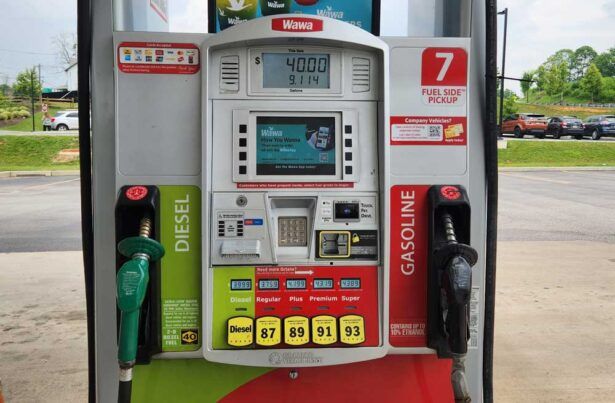
If you’re a small business owner, making decisions is part of your daily routine. If your business owns company vehicles, you’ve already had to decide what type of vehicles to acquire. You also had to decide whether to buy or lease and whom you will hire to drive them.
When it comes to fueling those vehicles, you have another choice to make—how will you pay at the pump? A company credit card, debit card, or even cash seem like obvious solutions, but a fleet fuel card may be the smarter choice. Keep reading for the answers to frequently asked fleet card questions.
Q: How is a fleet card different from cash or a credit card?
A: Fleet cards offer plenty of advantages over cash and credit cards. Cash is easily lost or stolen, and you don’t have a lot of control over how much can be spent at one time, or where. Credit cards give you basic purchase info like location and amount, which doesn’t give you much insight into your spending. Also, credit cards are usually swipe-and-go, and don’t require verification before use. It may take a while before you know if something is wrong.
Fleet cards do a better job of eliminating the busywork and hassle of managing your fuel spend. For example, driver PINs are required at the pump, to help prevent the use of lost or stolen cards. Your fuel expense accounting is done automatically, so you can stop chasing down employee fuel receipts. Easy to access reports let you know who spends what, where and when. Plus, you get detailed info for every transaction, including employee, location, price per gallon, fuel grade, and more.
Q: Are all fleet cards the same?
A: Wawa offers four different types of cards. They share the core features described above, but differences in acceptance and payment options let you choose the right one for your business needs.
- Wawa Fleet Card (charge card)
This card is accepted at over 850 Wawa fueling locations (99% Wawa sites have diesel) in New Jersey, Pennsylvania, Delaware, Florida, Maryland, and Virginia. The balance is paid in full each month. - Wawa Fleet Card (credit card)
This card is accepted at over 850 Wawa fueling locations (99% Wawa sites have diesel) in New Jersey, Pennsylvania, Delaware, Florida, Maryland, and Virginia. This card allows you to carry a monthly balance, when cash flow is tight. - Wawa Universal Card (charge card)
This card is accepted at Wawa plus 95% of U.S. gas stations, for more fueling flexibility. The balance is paid in full each month. - Wawa Flex Universal Card (credit card)
This card is accepted at Wawa plus 95% of U.S. gas stations, for more fueling flexibility. This card allows you to carry a monthly balance.
Q: Are fleet cards secure?
A: Fleet cards are one of the most secure ways to pay for fuel. Employees must enter a PIN for every transaction. This helps prevent unauthorized use if the card is lost or stolen. It also allows you to track the spending behavior of each employee. You can also rein in wasteful spending by applying purchase limits based on product type, dollar amount, time of day, and more. When you put it all together, Wawa fleet cards can help you know where every dollar of your fuel spend goes.
Q: How do fleet cards help me monitor my fuel expenses?
A: All Wawa fleet cards include automatic accounting and reports. These reports help you gain valuable insights into purchases and recognize spending and earning patterns. This allows your small business to better budget expenses and identify spending abnormalities.
Q: What types of fleet card reports can I run?
A: You can access easy-to-read reports based on your fueling data. Reports can help you manage budgets, improve performance, find savings, and spot red flags. These reports can be standard or customized to your needs.
- Purchase Activity Report. View all transactions made with your fleet cards.
- Financial and Site Summaries. Manage vehicle-related expenses and plan your budget.
- Tax Exemption Reports. Include any exemptions that can be applied to your account. (Qualified tax-exempt businesses only.)
- Custom Reports. Use your own criteria to create exception and summary reports for your business needs.
Running a business is difficult enough. Make life a little easier by choosing a fleet card that’s right for you.